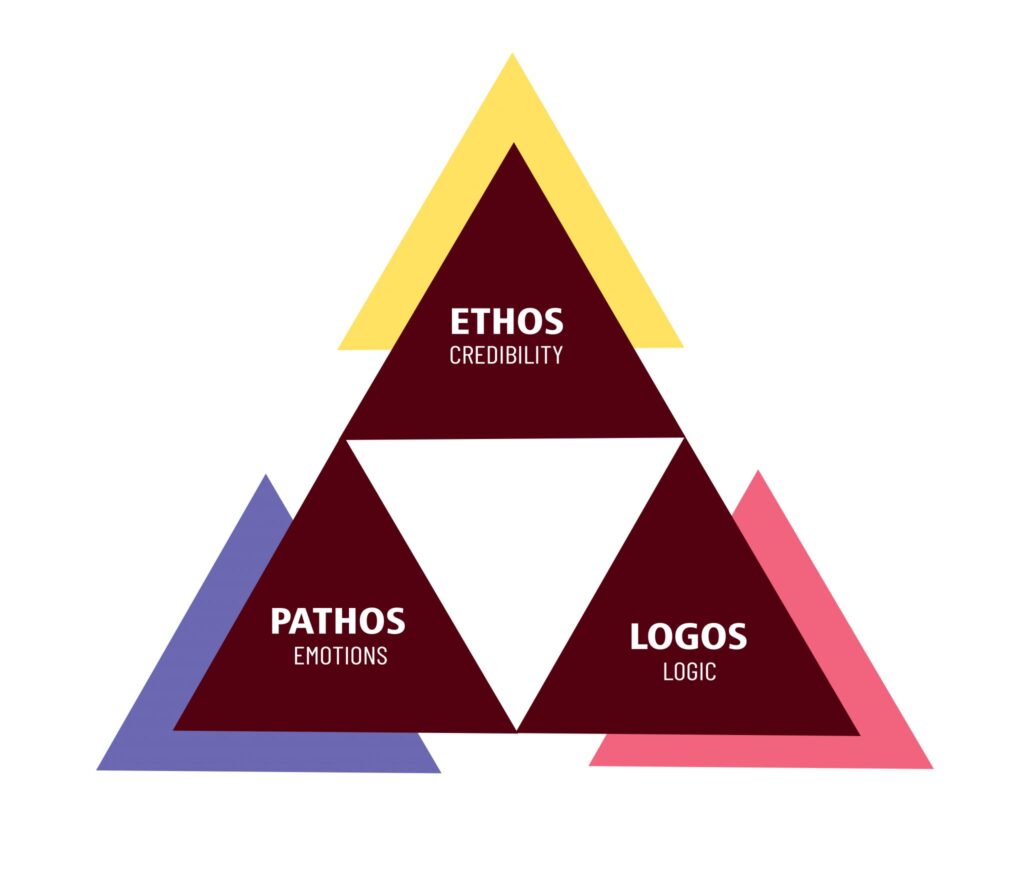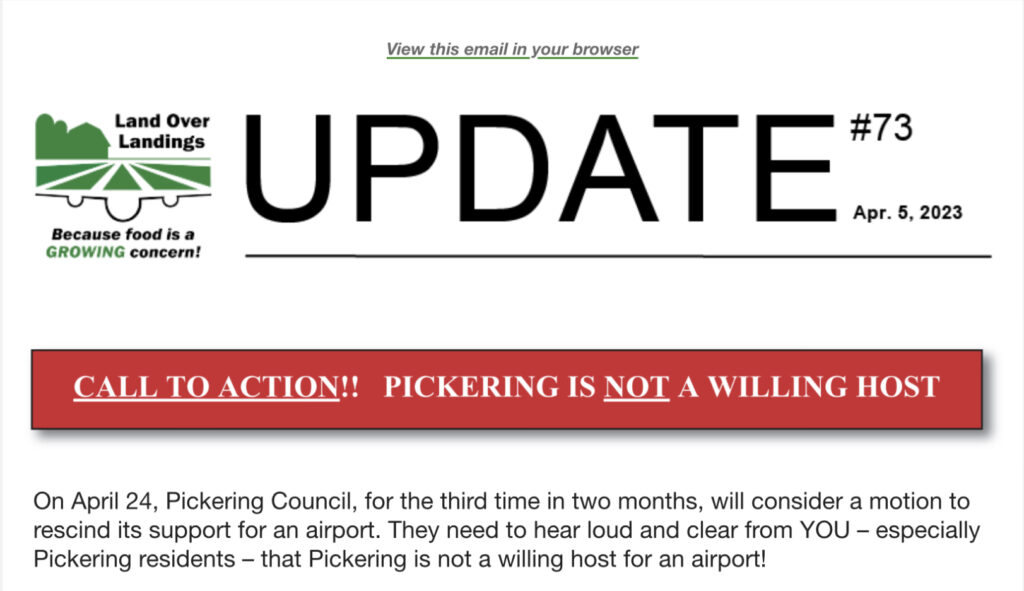The new Pickering airport is a critical part of Canada’s future economic and aviation infrastructure. Yet the stories recently appearing in our local press rarely mention this. They do not quote aviation or business organizations and rarely touch on the benefits of the airport. Instead, they are covering the topic with a political focus. Why are the views of an anti-airport lobby group contrasted with those of local elected politicians suddenly in the news?
A guy called Aristotle can help us answer this question and enlighten us on the nature of the content in our daily media cycle.

If you are educated in the art of critical thinking (please tell me, they still teach this in high school) then you will be familiar with a Greek philosopher called Aristotle. Despite dying 2300 years ago, never wearing pants, and having no idea what an airport is, he can help frame the debate over the development of Pickering airport. He can also explain the odd actions of those attempting to block it.
The ancient great Greek philosopher Aristotle postulated three types of argumentative appeals: logical (logos), ethical (ethos), and emotional (pathos). Aristotle’s logic has had an unparalleled influence on the history of Western thought, guiding how we debate and argue with each other to this day. Aristotle has also helped sell a lot of newspapers over the years, something reporters looking for an attention-grabbing story would be wise to remember.
The recent rash of local media attention on the plans for the region’s new airport started when two local conciliators put forward a last-minute motion to reverse the city’s support for the airport. This motion was tacked onto a February 27th council meeting, then postponed after five separate pro-airport delegations (including Yours Truly) scrambled at the last minute to remind the council of the strong case for the airport and to point out the misinformation contained in the motion. I was one of those who volunteered my time to respond. My participation was driven in part by the worry of unethical behaviour involving billions of dollars of government owned land set aside for the airport that will be an important part of our region’s future.
So how did the media cover this issue?
The motion was covered by the local paper only and promoted online in social media by an anti-airport lobby group. Local reporters gave the motion’s crafters a pass on adding it at the last minute to the agenda. This was a big miss as it pointed to something very interesting, an appeal to emotion (Pathos).
A study in 2016 found that when people are forced to make quick decisions about an object, they are more likely to rely on their emotional response to the item rather than objective information. The last-minute hijinks was intentional and meant to leverage negative emotions such as fear and self-doubt. This is a classic tactic used by NIMBY (Not In My Back Yard) groups across Canada. The reporters did not mention the pro-airport supporters’ message at all.

Figure 1: Aristotle postulated three types of argumentative appeals.
Let’s look at the Pickering airport issue through Aristotle’s lens.
The pro-airport supporters’ logos include billions in investment, 50,000 jobs and the addition of $10 billion a year to Canada’s GDP. The city’s tax revenue would double enabling dramatic reductions in residential property taxes and improved services.
Pro-airport ethos is also strong including support from the local chamber of commerce, multiple businesses looking to invest, aviation/logistics experts and organizations. For example, the CEO of Hitachi spoke as a delegate in favour of the airport on February 27th and plans to invest in it. A fact also missed by the media coverage.
Pathos created by local accessible aviation capacity include supporting a balanced work family lifestyles by the reduction of long commutes. New tax revenue will improve the wellbeing of the community by increasing funding for schools and combating poverty. Perhaps more money for classical studies education, specifically critical thinking? The airport’s net-zero footprint will help reduce climate anxiety, enable new green energy transportation and industry.
The arguments for building the new airport are a strong balance of all three of Aristotle’s appeals, especially the logical (logos), an essential part of any strong, valid argument. The arguments of the pro-airport side are in supporter of the good governance of our region and nation. They align with the development of net-zero emissions aviation in support of the fight against global warming.
The anti-airport camp does not have strong logos (logical arguments) against the airport’s development. Their ethos is also weak with no aviation or business organizations backing their claims. They, and their supporters have also been caught out making wildly in-accurate claims that have been easily disproved. An example of this is a local MP back-benchers’ misinterpretation of a Transport Canada report that suggests it is prudent to begin development of the airport. Their only hope of stopping the airport is pathos.
Pathos is an appeal to a reader’s emotion, both negative or positive. This encompasses both evoking a particular emotion such as fear and then invoking that emotion as justification for an action. As any reporter can tell you, it is emotion (Pathos) that gets readers attention above all else. Facts are great but it is emotion that sells ad space in a newspaper. For this reason, the use of negative emotion and misinformation to create FUD (Fear Uncertainty, Dread) is a cornerstone of NIMBY lobbying.
But pathos only arguments can also energize those on the other side of an argument. The FUD being created by the anti-airport lobbying was a primary motivator for our flying club members to begin volunteering expertise on the airport issue more than a decade ago. We do not push this expertise with press releases or ask for donations, but we do freely offer our expertise when asked or when an opportunity arises to counter misinformation.
The February 27th motion contained erroneous misinformation being pushed by the anti-airport lobby group and no mention of what was at stake. In the last weeks they have spent money and time doing press releases and social media promotion funded by donations. Despite being asked they have not made their financials public, so who are the donors? They want the motion removing support for the airport to pass. The question is why?
If passed, the motion would have no binding effect on the region. Durham region has now made the new airport, associated industrial park and logistics hub a centerpiece of its economic development plan.
The answer may be the attempt to create ethos by leveraging the credibility of local elected officials to the anti-airport cause. Another way to create ethos is to promote the idea that recognized intellectuals and artists support a cause. This type of ethos can help raise money and get media attention. It can also backfire by hurting the credibility of anyone who supports misinformation and interferes with a community’s good governance.
Passing a motion to drop support for the airport is a classic tempest in a teapot. The motion will not stop the new airport as it is now part of the regional development plan and ultimately a Federal Government decision as to the timing. The motion will require further actions, resources, and effort by the city to resolve the conflict it will create with the region. Hopefully Its only effect will be to give a local anti-airport group something to raise money with and reporters something to write about. But it could also do significant damage to the city.
Ultimately the motion’s effect would be to create a poison pill to scare away investors in the region.
The local press has been putting out weekly stories based on the anti-airport lobby groups press releases. This is an interesting relationship that appears to be profitable for both the lobby group and the reporters, but what about the community they live in?

Figure 2: An anti-airport groups newsletter stating the clear goal of scaring away investment in the airport.
I have no doubt that some opposing the airport believe that they are defending a noble cause, not special interests. That their lobby efforts are holy and just enough to enable white lies and ethical discrepancies. Troubling facts including who is benefiting from “temporary” land leases on the airport lands that would be extended if the airport is delayed is never mentioned.
The political-only nature of the coverage is understandable. If a reporter’s expertise is in local politics and events then that is what they will write about. The anti-airport lobby group’s focus is cultivating political and media contacts. Their mission is to put out press releases, create stories and ask for donations. For reporters, they are the story. But what about viewpoints promoting environmental, social, and economic balance?
Those individuals and organizations in favour of the new airport are not media focused. They have day jobs and families. Many would find the time to help a polite reporter asking questions, if the reporter has credibility.
To be truthful, why would a reporter call? Simply reporting a lobby group’s press release full of emotion is good enough to generate an eye-catching story. In comparison there is not much of a headline in the cold logic of truth.
Don’t blame the reporter (well maybe a little) , they are just covering the action. Blame the lack of critical thinking, proving the attention perpetuating a cycle of misinformation and encouraging bad governance. Next time you read the newspaper, maybe think of Aristotle.
Does the motion really reflect the majority opinion of Pickering citizens or just that of a small, special interest group? A decision of this magnitude, this importance deserves more than a sneak attack motion orchestrated by the benefiting few.
Mostly, think of what may be lost if this motion passes.
References:
Aristotle’s Logic (Stanford Encyclopedia of Philosophy/Fall 2020 Edition)
Personality and Social Psychology Bulletin, 42(2): 259–279. For a summary, see: Markman (2016). “Emotion Dominates Fast Choices,” Psychology Today.